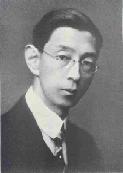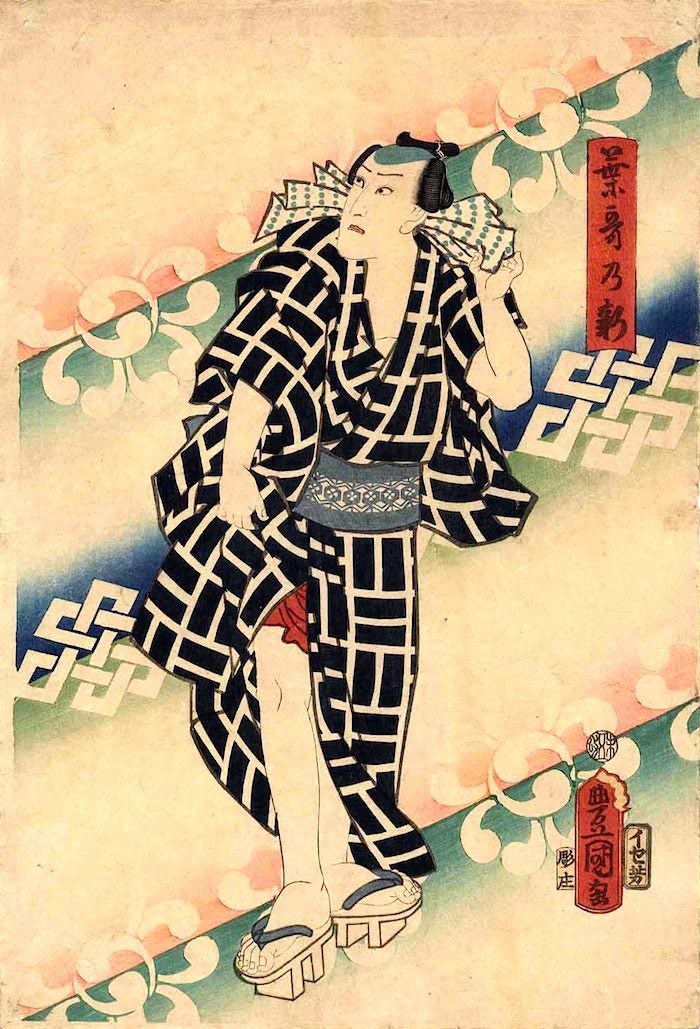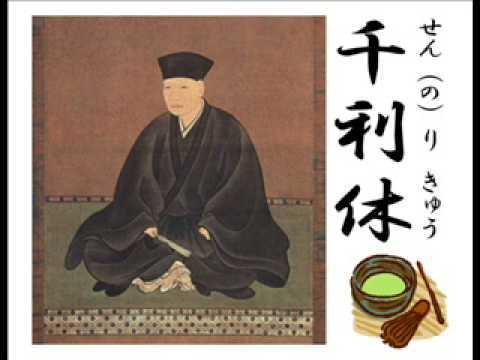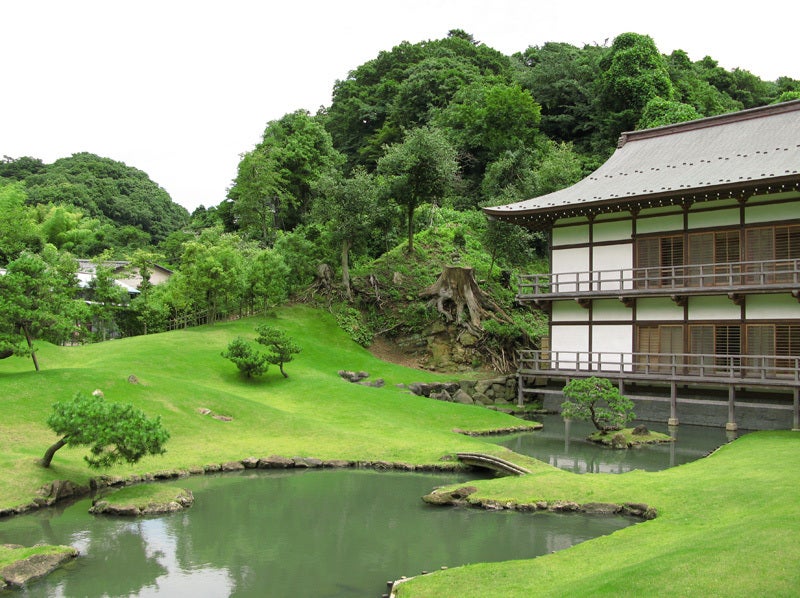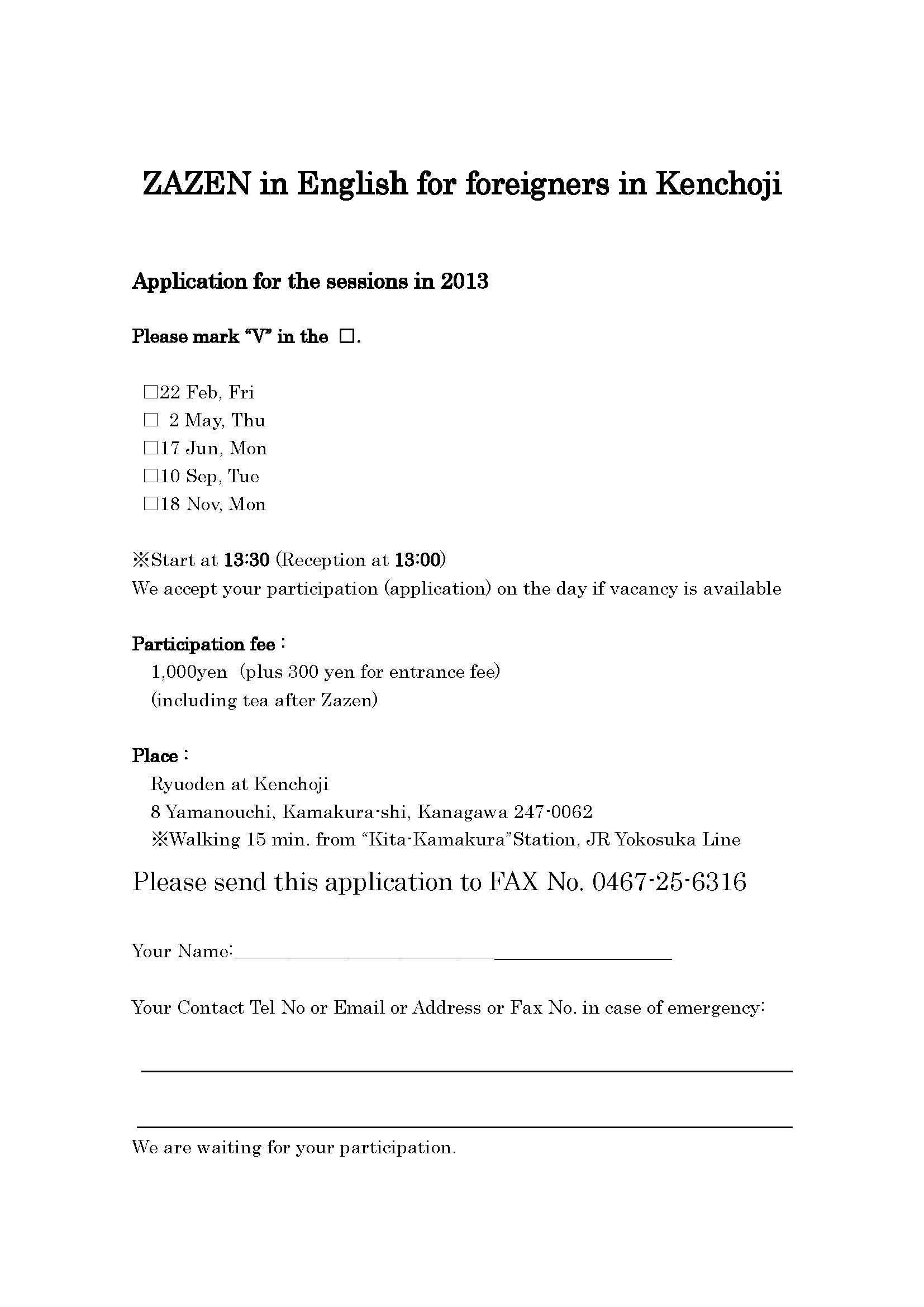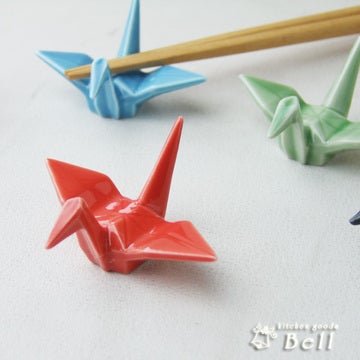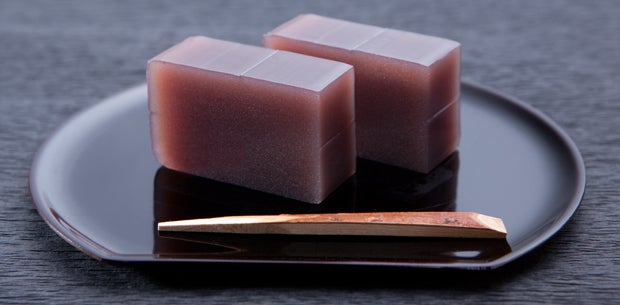粋について
こんにちは。
美紗です。
今日は日本文化を理解
する上で大切な言葉について
書いていきます。
「粋」について
日本の哲学者九鬼周三(1888-19419)は
【粋の構造】という論文で
〈いき〉(粋)は
・〈媚態〉
・〈意気地〉
・〈諦め〉
の3要素から構成されている、
と主張しています。
手放す、委ねる、固執しない、
押しつけない、それが〈いき〉なのだ
としています。
それらは、わが国の道徳的理想主義と
宗教的非現実性によって支えられ、
前者は武士道よって、
後者は仏教によって育まれてきたと
i言われてます。
東京は芝に生まれて
江戸の花柳界や俗曲によく遊んだうえで、
ベッカーに影響をうけ、
フランスではベルグソンに学んで、
その文化の風土にひそむ感覚、
たとえば“シック”を哲学したのち
京都帝国大学に招かれ、
その後はずっと京都に暮らしました。
二度目の夫人は祇園の芸者でした。
ようするに九鬼は、「江戸の鉄火」と
「ヨーロッパの形而上学」と」
「京のはんなり」を、
その土地からも
その言葉からも吸いこんでいました。
父は貴族。
周造がおなかにいるとき、
母は美術史家・思想家の
岡倉天心(1863-1913)と
恋愛関係となり、
出産後に離縁されています。
幼い周造は、天心が自分の
ほんとうの父なのではないかと
思っていたとそうです。
ドイツとフランスに学び、ベルクソンと交流、
ハイデガーに師事、
若きサルトルを
家庭教師に雇ってフランス語を
学んだともいわれています。
またドイツ語Existenz(仏語・英語のexistence)を
「実存」と訳すのは、九鬼が定着させたことらしい。
帰国後、京都大学で教鞭を執ります。
西田幾多郎とともに「京都学派」の
スター的存在となりました。
主著【偶然性の問題】をはじめ、
「偶然」とか「めぐり逢い」を
生涯重視しつづけたのも、
とても垢抜けた姿勢でした。
粋なスーツ、粋な帽子、粋な柄等、
他とは違う目立つ何か、
垢抜けたという意味で
使っていませんか?
そういった意味での格好つけ、
格好良さということならば、
cool ならこれ自体に
カッコいい、渋い等の
意味があるので
適語ではないかと思いますが
coolは口語「イカしてる」という」
ニュアンスで使われていますので
江戸っ子の「粋」とは違うようです。
浅草をあるいている
かなりの外国人達が
良く使っています。
「最新日米口語辞典」(朝日出版社、
エドワード・G・サイデンステッカー、
松本道弘共著)では、
「粋な」を stylish としています。
この場合は、「流行に合っている」「ファッションの
先端をいっている」というニュアンスの粋、
別に chic、refined (垢抜けた)も使えるとあります。
stylish. には「様式美の」とか
「風流な」の意味もあるので
これは「粋な」にかなり近いのでは
ないでしょうか?
懐石料理
こんにちは。
美沙です。
本日は日本の文化を分かりやすく
説明してみましょう。
我々日本人には当たり前のことを
外国の方にどのように
説明をしたらよいのか?方法としては?
等を書いていきます。
今回の記事を読んでいただければ
日本人には当たり前の生活、文化の
説明を優しい単語で説明できるように
なります。
通訳ガイドも出来るでしょう。
地域のボランティア活動にも参加
出来、友達も増えるでしょう。
ですので、1分だけ
私にあなたのお時間をください。
逆に 「後で読もう」「面倒だ」
と、あなたが今この記事を読まなければ、
この先も、1週間後、1年後も
英語の力が伸びないまま
今の状態は変わることなく
益々悪くなる一方でしょう。
たった1分だけでいいですので
これから書く記事を
読み進めていただけたらと思います。
それでは書いていきますね。
今回は「懐石料理」の説明を例に
どう分かりやすく説明していけるか?
を探ります。
それでは英語力をアップするために
今回の記事の内容を最も効率的に
体得していただく為の具体的なステップを
書いていきます。
【ステップ1】
声に出して読む。
【ステップ2】
赤い文字の単語フレーズを
ノートに書き出し覚える。
【ステップ3】
日頃から日本文化の説明に
興味を持ち、本を読んだり
ネットで調べたることが面白く
なってくればシメタもの!
Yahoo、Youtube は大変参考になります。
英語版もありますので外国のお友達も
すでに見ているかもしれませんね。
説明が出来るような英語力を得るために
上記の内容を是非実践してくださいね。
Nowadays, on Yahoo animation, we can see many
beautiful pictures and explanations of Kaiseki-cuisine.
According to 「日本の文化キーワード辞典」
(The dictionary of key-wards of Japanese culture)
Kaiseki-ryouri is explained as follows;
「Kaiseki-ryouri(Tea lunch)
Kaiseki refer to a heated stone
that a Zen priest holds to warm the chest.
☆ refer to ~:~に関連している
Just as small stone can not sufficiently
warm the body, neither can this cuisine,
suffficiently satisfy an empty stomach,
with its small amount of food.
☆ small amount of ~:~の少量
千利休(Sen-no-Rikyu ) started Kaiseki-ryouri
during the Azuti momoyama period.(1573-1603)
It is mainly the simple meal that the host of chanoyu
gathering serves to the guests before
a ceremonial tea and is known as cha-kaiseki (茶懐石)
The art of the tea ceremony,based on
the spirit of Zen Buddhism, aim at simplicity,wabi,sabi.
☆ aim at ~:~をねらう
☆ ”wabi”は "something smple",
"Beauty within simplicity"のように説明できます。
☆ ”sabi” も"the beauty from serenity (静謐)
comes with age."と説明出来ます。
Accordingly,the cuisine also excludes meat
and centers on vegetable diet.
☆ center on~:~に集中する
However,the Kaiseki ryori served at resaurants
is removed from the spirit of Buddhism and ,
☆ be removed from ~:~隔たった
instead of simplicity,only appears to have a rivalry
of flavors (料亭間の味の競い合い) all the time.」
This multi-course cuisines served at restarants ,
prepared from fresh seasonal ingredients
reflects the bounty ( 恵) of the seasons,
and celebrates every nuance of shifting season.
A : I learn a lot.
これから、「日本の文化を説明しよう!」ブログを
書いていきます。
それでは最後に今日の記事を
読んでいただきまして
少しでもお役に立てましたら
今すぐ『いいね』ボタンを押してください。
それでは今日はこの辺で。
最後までお読みいただきまして
ありがとうございます。
明日からの記事も楽しみにしていてください。
建長寺にて
こんにちは。
美紗です。
今日も
二人の会話を聞きながら
会話を楽しく続けるコツ
のような物について
記事を書いていこうと思います。
「会話がどうしても続かない。」
そんな時は、
まず自分から
思っていること
感じていることを
話してください。
テニスのラリーを
イメージしてみます。
こちらからボールを
打つのです。
こちらが打った球を
相手方は
打ち返してくれます。
帰って来る球を
よーく見てください。
相手方の話を良く聞いて
その中から
時節にあった言葉を拾い、
連想ゲームのように
イメージを広げてゆけば
話は続けていけるはず。
相槌、アイ・コンタクト、
喜怒哀楽を
素直に表現する事も忘れずに
会話を楽しく展開していけるように
なりましょう!
自然体でいるのが
一番よいのです。
自分の気持ちに自信を
持ちましょう。
「話をしていても
あまり乗ってきてくれない~。
何を感じ、考えているのか
伝わってこない~。つまらない人!」
なんていう印象を
持たれたくない。
でも消えない苦手意識。
こんな意識から逃れる事が出来なく
いつまでも自分の不甲斐なさに
苛まれるなんて避けたいですよね。
今回の記事を
読んでいただければ
「英語で会話を続けるのって楽しい。」
という自信を
手にすることが出来ます。
外国の友達が増え、
内気だった自分が話上手になり
性格も明るくなって
勉強が楽しくなってきて
毎日が充実してくるでしょう。
ですので1分間だけ
私にあなたのお時間をください。
逆に「時間無い」
「私には無理」と
今あなたがこの記事を
読まなければ
この先も
「英語で会話をする時
緊張して喉が
詰まったようになり、
声が出ない!どうしよう?
言葉が出てこない!。
頭の中が真っ白!
穴があったら入りたい!」
という情けない状態は
3ヶ月後1年後も
今の状態は変わることはなく
益々悪くなる一方でしょう。
それでは、書いていきますね。
英語で会話を
途切れさせる事なく
気持ち良く展開してゆくための
コツはまず
相手の方の話を
よく聞いて、どんな事を感じ
知りたいのか、
相手の方の気持ちを
推測してください。
相手の方の気持ちを
汲んだ楽しい会話を
続けられるでしょう。
外国の方と話すのが
嫌になってしまう
なんてダメ、
どうしても避けたいですよね。
それでは「英語で会話をするのは
楽しい」という自信をつけて頂く為に
今回の記事の内容を
最も効率的に体感して頂く為の
ステップを書いていきます。
【ステップ1】
声に出して読む。
【ステップ2】
赤い文字の単語、フレーズを
ノートに書き出して覚える。
【ステップ3】
普段から日本の友達と
話をするときどんな風に
続いていったかを
覚えておくと
心強いかもしれません。
「英語で会話を
続けていくのは
決してむずかしくない。」
という事を納得して頂く為に
上記の内容を是非
実践してみてくださいね。
ランチをいただきながら
A :When I am in some garden,
I try to feel the air,light,beeze 「微風」
and sound in the space ofeach garden.
K : You got the essence of
Japanese garden.
☆ the essence of ~:~に名詞を入れる
「~の本質」
A : Do you think so ?
K:Sure I do.(相槌)
M:In the modern age,
only a few gardners
can make such spiritual gardens.
To aquire the skill and mastership
to make typical Japanese spiritual gardens
needs long term of appreticeship
of hard training
under their masters.
to become a grown -up professional.
☆ apprenticeship :「見習い期間、徒弟修業期間」
☆ a grown-up :「一人前の」
K:I've heard there live
some English men who became
Japanese gardners mainly in Kyto.
M: Me too.
I'm afraid I don't know anybody.
In Kyoto,you'll be able to find some of them.
☆ be afraid ~:~に文章を入れて
「残念ですが~です。」
Let's check the Internet later on.
.
A :It's a good idea !
建長寺へ
K : This is Kentyoji Temple.
Please go ahead inside. I'll park this car.
☆ go ahead :「先に行っていて。」
M : OK, Keiko.
A : Again, the magnificent (壮大な) temple gate !
M : This is the head temple of Rinzai-sect「臨済宗」
The first rank in Kamakura main 5sects.「鎌倉五山」
I'm afraid I don’t know
much about the sects of Buddism.
A : Any way, How grand ! (壮麗な)
The gait is built with huge column of wood.
Not with stone nor bricks.Amazing !
M : This was build in 1253.
Suffering many big fire disasters ,
this gate was rebuild
in Edo-period ( 1600-1869).
So the gate is over 150 years old.
K : Sorry, I kept you waiting.
☆ Sorry,I kept you waiting.:
「待たせてごめん」
M :Don't mind.
☆ Don't mind. :「気にしないで」
K :Let's go around the precinct.
M :There was a Japanese garden behind
the main temple,wasn't there?
K : Yes, You are right.(相槌)
お庭を拝見し終わり出口へ
M : There is such a program、:"Zazen in English for
foreigners in Kentyouji."
You can participate in
the early morning Zazen on any day
written on the application form below.
☆ : participate in ~:~に名詞を入れて
「~に参加する。」
A : Interesting !
I do meditation quite often,
in our church,or at my home,
sitting calmly,breathing deeply,
closeng my eyes.
It is different from prayers.
K : Do you ? (相槌)
Anywhere in the world,
such a state of mind is nessesary
in our daily lives.
Regardless of what religion he/she
believes in.
☆ regardless of ~:~に名詞を入れて
「~と関係なく」
A : I think so,too.
I'm impressed with
the spirituality of the garden,
☆ be impresed with~:~に名詞を入れて
「~に感動した。
強く印象づけられた。」
K :It's almost 3:30pm,
Hurry up to Zuisenji 「瑞泉寺」
瑞泉寺で
K : Muso-kokushi「夢想国師」loved nature
and made many sophisticaed (洗練された)
gardens at the places he visited.
And this is the one of them.
He was a calligrapher( 書家、能筆家)
a poet and a garden designer, as well.
I'm curious about him、indeed.
☆ be curious about ~:~に人、物、事を入れて
「~について 興味(好奇心)がある。知りたい」
This simplicity seems
to have some meaning,
but it 's very difficut to tell.
K : It is difficult to tell
the atmosphere of the rock garden.
M :I think so,too.
You will be able to visit
many rock gardens in Kyoto.
A :楽しみですね。
K :This temple is called
"Temple Flowers"「花の寺」
in each four seasons,
we can see, Japanese plum,
daffodils,narcissus,cotton rose「芙蓉」etc.
瑞泉寺を後に
K :Please drop in at my house
in Kamakura-yama.
Let's have tea and chat together !
☆ drop in at ~:~に寄る所を入れて
「~に立ち寄る」
M :Why not ?
☆ why not ? 「勿論よ。いいです」
まだ3人は、話していたい様子ですが
失礼しましょう。
楽しい思い出が出来ましたね。
それでは最後に今日の記事を
読んでいただきまして
少しでもお役に立てましたら
今すぐ『いいね』ボタンを押してください。
それでは今日はこの辺で。
最後までお読みいただきましてありがとうございます。
鎌倉へ
こんにちは。
美紗です。
本日も引き続き会話を
楽しく続けていくコツを
考えていこうと思います。
英語に限らず
「話題がすぐ尽きてしまう。
どうしよう、、、」
そのような時は
まず、目の前にある物
(花、犬、空の雲等の形、色等)を
思ったまま表現してみてください。
そうすれば話題がいくらでも
見つかると思いませんか?
又、相手の話に出てきた言葉を
ヒントに連想ゲームのように
言葉を探せば話題は
見つかるでしょう。
今回の記事を読んでいただければ
「自分は英語で会話を楽しく
続けられない、気を使い過ぎてか、
心から楽しめない。」
そんな苦手意識を
捨て去ることが出来ます。
ですので
1分だけでいいので
これから書く記事を
読み進めていただければと
思います。
逆に、「後回し。」
「時間無い。」と
あなたが今この記事を
読まなければ
この先も、
3ヶ月後も、半年後も、
今の現状は変わることなく
益々悪くなる一方でしょう。
「会話を続けられない。」
あー冷や汗が出てきた!
もうイヤだ。
早くここから抜け出したい。」
こんな気持ちになるのは
避けたいですよね。
たった1分だけでいいので
これから書く記事を
読み進めていただければ
と思います。
それでは、書いていきますね。
会話が途切れたら、
とりあえず目の前にある事、物を
完璧な英語でなくてもよいので、
声に出し表現しましょう。
まずこちらからボールを打つのです。
相の方は「いいラリーが出来そう。」と、
こちらが打ち返しやすい言葉を
打ち返してくれます。
会話のラリーを諦めてしまい
相手の方と心を許せる仲になれず、
いつまでもしり込みしている自分には
なりたくないですよね。
それでは「英語で会話をするのは楽しい。」
という自信(宝物)を得る為に
最も効率的に体感して頂く為の
具体的なステップを書いていきます。
【ステップ1】
声に出して読む。
【ステップ2】
赤い文字の単語、フレーズを
ノートに書き覚える。
【ステップ3】
簡単な英語で日記を書いてみる。
一日の出来事を英語で書き出して
みましょう。「朝は何時に起きたか?
朝食は何を?」等。
それを声に出せれば
英語で話している事に
なります。
シメタものです!
「何の不安なく英語で
会話を続けられる。」
ようになる為に
上記の内容を
是非実践してみてくださいね。
次の朝、朝食が終わり、
哲夫先生、綾もそれぞれ
大学、中学校へと行きました。
美紗は綾の為にカレーを作ります。
掃除をしたり
アンと音楽を聴いたり
おしゃべりをしていると
正午、さあ、駅へ向かいます。
車中です。
A:The scenes from the window are changing ,
getting rural.(田舎風)
M : That's right, same as in England,arn't they ?
A : "Kaki-o"「柿生」
M : In former days and even now,there are a lot of
percimmon trees in this area.
☆ In former days/times :(昔は)
You have percimmon trees in England,don't you ?
"kaki" means "percimmon,"
"o"means "to grow "
So "Kaki-o"means "The area of percimmon trees"
In autumn we can come here to pick fruites by yourself.
☆ by one's self (自分で)
It's a good experience for children to pick fruites
by their own hands.
A : I think so,too. We have PYO(Pick Your Own),too.
(日本の柿もぎ、ブドウ狩りとほぼ同じ)
M : I did when I was a student. It was my cherishing memory
of long summer evening as if it were only yesterday.
☆ as if it were only yesterday:「昨日の事のように」
M : When I was a child ,we had a percimmon tree
in the middle of our garden. We could pick
many fruites.
But it was an astringent kind.(渋柿)
The fruites were not eatable=edible
(食べられる)( eat +able )
as they were.
If we could manage to make "hoshigaki
(dried percimons), we could have our
homemade dried percimons。
But as my father was a diabetic(糖尿病)、
we didn't care about "shibugaki"
☆ can manage to ~:~に動詞の原形を入れて
「~を上手くやる/処理する。」
☆ care about~:~に関心のある物を入れて
「~について関心がある。」
A: They accept very strict diet for the diabetics.
M :Yes they do.(相槌)
そんな話をしていると丁度約束5分前に
江の島の駅に到着。
改札で馨子さんが手を振っています。
K :Welcome to Kamakura !
Nice to meet you,Ann.
Call me,Keiko.
A:「初めまして!」
K: Let's go first to Toukeiji 「東慶寺」。
江の島海岸を見ながらのドライヴ。
東慶寺
Here we are !
A :Lovely temple gate !(山 門)
M : This temple is called "Divorce Temple"(縁切り寺)
That is to say this is a temple sanctuary(聖域)
for women seeking divorce.
☆ that is to say~:~に文章を入れて
「すなわち~」
K: In Feudal time,the age of male chauvinism
once a woman got married ,she could not
state divorce from her side,
☆Feudal time :「封建時代」
☆ the age of male chauvinism:「男尊女卑
の時代」
only her husband could state their divorce.
Women didn't have any initiative at all.
☆ not at all :(否定文で)
「まったく、少しも」
M : Many women,leaving their husbands
come to this temple to become nuns.
A : I'm deeply impressed.
☆ be impressed:「(強い印象を受けて)
「そうなのね。」
まだ紫陽花が満開です。
何種類あったでしょうか?
A :Quiet and serene ! (穏やか)
K :Yes it is.
1時間足らず東慶寺を一巡り紫陽花を満喫、
近くのレストランへ
席を取り懐石弁当を注文しました。
K : In spring ,all the Japanese plumtrees (梅)
are in full bloom、crocuses,violets as well.
☆ be in full bloom:「満開です。」
☆ as well:(too/also) 「もまた」
A :I remember my friend said
that in the Garden center of
Royal Botanic Garden in Kew,
we can see Japnese plum trees.
Someday I will go to see them in spring !
K : I heard you are interested in Japanese Garden.
☆ be interested in~:~に興味のある物、事、人等
を入れて「~に関心をもっている/興味がある。」
A : Yes I am. Japanes desigh is very close to nature,
not so symmetrical(左右対称) as French gardens.
Our garden design is also
close to nature ,compared to French design.
☆ compared to ~:~に比較する物を入れて
「~と比べて」
M : We went the iris garden in Meiji Jingu
the day before yesterday.
Still many irises were full in bloom.
☆ the day befor yesterday(一昨日)
K :Did you ?
When I was a student, I visited Meiji Jingu often.
But now in Kamakura, there are many temples
with wondrful gardens whch I've never been ,still.
M : After lunch shall we go some other temples ?
K : The closing time of Temples is 4:00 p.m.
So we can visit two or three,today.
A : Delighted !
ランチを終えて次はどのお寺でしょう?
それでは最後に今回の記事を
読んでいただきまして少しでも
お役に立てましたなら、
今すぐ『いいね』ボタンを押してください。
それでは今日はこの辺で。
最後までお読みいただきまして
ありがとうございます。
明日からの記事も楽しみにしていてください。
テーブルを囲んで
こんにちは。
美紗です。
本日も引き続き
皆の会話を聞きながら
会話(英語に限らず)を楽しく
続けて行く方法、コツのような物
についての記事を書いていこうと思います。
大切な事の一つは、「アイ・コンタクト」です。
相手の目を見たら、そらさない
ようにしましょう。。
あなたなら自然に意識せずとも
相手の方の目を見て
話せると思います。
でも「どうしても目を合わせるのが
日本人同士でも苦手」」という方も
いらっしゃると思うので
目をそらすことは、
相手に悪い印象(不誠実な人)を
与えてしまいがちということを
覚えておいてください。
必要以上に見つめる必要はありませんが。
今回の記事を読んでいただければ
「英語で会話が続かない。」
「どうしても途切れてしまいがち。」
と思っているあなたは
きっとコツを飲み込んで
会話を楽しく続けていくことが
出来るようになるでしょう。
ですので、1分間だけ
私にあなたのお時間をください。
「出かけるから後で。」「時間無い。」
と、今あなたがこの記事を読まなければ、
この先も、
「英語で会話をするのは億劫、自信ない」
という思い込みは少しも変わることなく
1ヶ月後、2年後も、今の状況は
変わることなく益々悪くなる一方でしょう。
たった1分だけでいいのでこれから書く記事を
読み進めていただければと思います。
それでは書いていきますね。
コツは、相手の方に自分の好意なり
正直な気持ちをを、はっきり示す事です。
私たち日本人は、欧米人に比べて、
とかく表情に乏しいので喜怒哀楽を
遠慮せず正直に出しましょう。
気持ちが良く伝わってこない人、
何を考えているのか分からない人、
控えめな性格なのだろうけれど
物足りない人
という印象を与えてしまい、
相手の方も心を開いて
くれなくなってしまう、
そんな事は避けたいですよね。
度胸と愛嬌でいきましょう。
それでは「英語で会話を
楽しく続けていく自信」を得るために
今回の記事の内容を最も効率的に
体感して頂く為のステップを書いていきます。
【ステップ1】
声に出して読む。
【ステップ2】
赤い文字の単語、フレーズを
ノートに書出し覚える。
単語とフレーズの貯金が
増えていますね!。
「英語で会話って楽しい。」という
自信(宝)を得るために上記の
内容を是非実践してみてくださいね。
テーブルの席に着きます。
M : Here are rolled hand towels.(お絞り)
Aya, please give a glass for your Dad.
Aya : Here you are.
☆ Here you are:「ここよ、どうぞ。」
T :Thanks, Aya.
Cheers ! (健康を祝して乾杯!),for Ann's coming !
M :Let's start!
I'll put vegetables first.
"Shabu " means let the ingredients swim in the pot
3-4 times sideways like this.
☆ let ~(open, run等の動詞の原形):~にさせる物
を入れて 「~を泳がせる。」
The ingredient are slightly cooked, or half done,
and excess fat (余分な脂) is removed already.
☆ be slightly cooked or half done:「少しだけ、半分だけ
料理(煮えて)されて、」
You can dip them in your sauce bowl
with any kinds of sauce, Ponzu sauce,
sesame sauce and grainded radish sauce「大根おろし」
A : Okay ! How soft and sweet these Chinese cabbage !
T : Do you eat your dinner or supper like this ,
cooking on the dining table?
A :No, we don't have habits to cook on the table.
We cook only in our kitchen.
But this is a good idea or style.
Everybody can participate in the cooking
process, while eating, chatting.
☆ participate in ~:~に参加する物を入れて
「~に参加する。」
I'll try this style "Shabu Shabu"
when I will be back to my home.
M :Ann ,you should buy "Dashi konbu".
You can keep it very long time
for a year or so.
A :Yes, I’ll make my special magical ”Dashi”
in my kitchen at home.
Tetsuo sensei, you are a professor of Seismology
「地震学」.
As Japan is a volcanic country, is it true that
someday in the near future Mt. Fuji will explode ?
T : Mt. Fuji is an active volcano(活火山)
As huge magmas are accumulated,
the percentage of her eruption is 100%.
We are getting data from all over Japan.
A : We don't have earhquake.
But on TV news , we saw a lot of pictures
of devastated areas, which gave us great
shock. I felt the threat of Nature.(自然の驚異)
T : Within 10 years, we are surely going to be hit by
a big earthquake of an intensity of 7-8° (on the Japanese scale)
We have to prepare for the disaster as much as we can.
☆ an intensity of ~:~に震度数を入れて
「震度~」
M : This is a side dish(おかず) for wine,”Green beans (さやいんげん)
with sesame dressing.”
How are these meat?
T : Good!I'm hungry.
A : Super ! The excess fat of meat is removed,
this is very healthy.
M : We put noodle in this remaining soup.
A : Very practical and clever.(賢 い)
All in one.ですね。
T : You are learning Japanese, aren't you?
A :Yes, I am !
夕食が終わると居間へ
M : What do you want to drink?
T: I’d like to have coffee, please.
A : Me too !
Aya :Tea for me、please.
M : We are going to Kamakura tomorrow.
Is it all right for us going ?
Aya will stay.
T : OK. I'll be late, because of Faculty meeting .
M : We will be back by 9:00p.m.
T : Enjoy fully !
Please give my best regards for Keiko.
☆ give my (best/kindest) regards for ~:~に
名前を入れて「~によろしくと伝えてください。」
冷やしたメロンを頂きながら
アンはお土産をプレゼントします。
A : This is for ,Tetsuo sensei, 「バーバリーのハンカチ」
this is for Misa,「スカーフ」
and this for you, Aya.「テディベア」
T : Many thanks, I use handkerchieves a lot,
these are very chic ,indeed.
Aya : Thank you, Ann !
It's not easy to find a nice one like this.
M :This is from us ,Ann.
A ::Thank you, Tetsuo ,Misa and Aya.
What a lovely tablecloth with beautiful pattern
of "Orizuru"
まだまだ、居間ではお話が続いていますが・・・
失礼します。
明日は鎌倉へ行きます。
それでは、最後に今日の記事を読んで
いただきまして少しでもお役に立てましたら
今すぐ『いいね』ボタンを押してください。
それでは今日はこの辺で。
最後までお読みいただきまして
ありがとうございます。
明日からの記事も楽しみにしていてくださ
夕食の準備
こんにちは。
美紗です。
今日も引き続き
英語で会話を楽しく展開してゆくための、
コツのような物についての記事を
書いていこうと思います。
今回の記事を読んでいただければ
あなたは「英語で会話をする際、
無駄な緊張をせずに話を
続けていけるという」自信を
得ることが出来るでしょう。
ですので、1分間だけ私にあなたの
時間をください。
「時間無いな。」「後回しに。」とあなたが
今この記事を読まなければ
英語で「会話が続かなくて、相手に
気を使いすぎ緊張してしまう」そんな
自分だけの思い込み、
情けない気持ちは
この先も、半月後も3年後も
今の状況は変わることなく
益々悪くなる一方でしょう。
「楽しく会話が続けられない人」
「話がつまらないあの人」
なんていうレッテルを張られたくは
ないですよね。
たった1分だけでいいので
これから書く記事を読み進めて
いただければと思います。
それでは書いていきますね。
英語に限らず会話を
楽しく続けていくコツ
の一つは相槌を打つ事です。
まさに言葉のキャッチボールなんです。
ボール(言葉)受けて投げるの繰り返し、
あなたが日本の友達と
お話をするのとまったく同じなんです。
タイミングよく相槌を打つと
相手の方は
「私の話を聞いていてくれる。」と
気持ちが楽になって
あなたとの会話が
広がってゆくでしょう。
それでは、「英語で会話を
楽しく続けてコツ」
を得るために今回の記事の内容を
最も効率的に体感して頂く為の
具体的なステップを書いていきます。
【ステップ1】
声に出して読む。
【ステップ2】
赤い文字の単語、フレーズを
ノートに書き出し覚える。
【ステップ3】
普段日本の友達との会話の際
意識しなくても顔の表情、しぐさで
相槌をうっていますよね。
どんな相槌があるでしょう?
思い出してみてください。言葉こそ
違っても状況は同じ。
簡単な合槌を覚えておけば
問題なし。
「英語で会話を続けるって楽しい」という
自信をつけて頂く為に上記の内容を
是非実践してみてくださいね。
二人は何を買うのでしょうか?
M :I'm going to prepare ”Shabu Shabu”
for this evening.
A : I've heard about it. My friend told me she had
"Shabu Shabu”in some restaurant in London.
☆ some ~:「ある~ 」(はっきりとは分からない、アンが
レストランの名前を憶えていないから)
She said it was a very healthy cookery with a lot of
vegetables.
近くのスーパーで
M :I'll have this Chinese cabbage、「白菜」
white leek,「長ネギ」、corn daisy,「春菊」
hackberry,「えのきだけ」、
Shitake-mushroom,「椎茸」、carrot,
and sliced yellowtail「薄切りぶり」
broiled tofu「焼き豆腐」、thinly sliced pork
for ”Shabu Shabu”.
We need this sauce, Ponzu sauce.
This brand sauce has a special good flavor.
☆ This brand ~:~の箇所に商品名を入れて
「この銘柄の~」
A :Is that so? 「そうなの?」(これも相槌)
I'll buy this melon for our dessert.
M : I saw my friend, Masako over there !
Hello, Masako. This is my friend from
England. She'll stay with us for a week.
☆ stay with ~:~の箇所に滞在する人の名を
入れて」
A : Nice to meet you、Ann.
Ma : Nice to meet you、too.
M : Please come to us someday,
when you are available.
Let's have tea time together !
☆ be available :「(手が空いて)出来る」
Ma : Sure I will.
I wonder if my poor English may work or not.
☆ I wonder if ~:~の箇所に(かどうか)の
文章を入れて「~かしら」
☆ work「効果がある、通じる、動く等」色々な意味があります。
Have a nice day !!
M : Have a nice day,too,Masako.
Bye !
台所で
M : Cut these vegetables into proper size like this.
☆ In proper~ :~に形、サイズ、長さ、重さ等を入れて
「適当な~に」
Put vegetables on a big plate, like this.
Sliced pork and sliced yellowtail(鰤)on this plate.
Aya, please put them on the dining table.
Aya : OK, Mom. Where is the Ponzu?
M : Here you are.
☆ Here you are : 「(物を渡すとき)ここにあります。」
Aya :Please put chopsticks on this chopsticks rest「箸置き」
like this.
A: OK. They are cute !
M: We are going to cook on the table,
using this cassette stove(カセットコンロ)
This is very easy ,isn't it?
This is our favorite earthen pot.「土鍋」
I put some water and soak kelp 「昆布」
before boiling for 30 minutes.
This is a simple ”dashi”.
A :Very simple ,indeed.
「 楽しみです。」(アンは少しずつ日本語
を覚えています。)
M :My husband will come home around 7:00p.m.
Till then ,shall we open this bottle of white wine?
A :I'll open it, give me an opener, please.
M :Here it is.
☆ Here it is:「ここにあります。」
Aya : Here are your wine glasses, I'll have grapefruit juice.
ワインを飲みながら
M :Yesterday evening I called my friend Keiko of Kamakura,
she will be free tomorrow . She said she would waite
for us at 1:00p.m .at Enoshima station with her car.
A :Super !=Wonderful !「( 英国人がよく使う)素晴らしい!」
(これも相槌)
M : Aya、Can you manage while we are away till evening
around 9:00p.m ? I'll leave your supper in the fridge.
or if you like you can make your own supper.
Daddy will be late tomorrow.
Aya : As I have to prepare for the exam,
I'll stay anyway. 「いずれにせよ」
Don't worry,Mom. Enjoy your trip !
A : Aya, do you like English?
You speak very good English.
Aya : Yes ,I do. I can ask Mom, anytime.
A :You are a lucky girl !
M : Shall we go out to see our hydrangeas
in our small garden?
A : Wonderful !
M : Their peak is getting over,but some of them
are still colorful. Hydrangeas symbolize
the rainy season.
Aya: Hydrangeas ”hydra” is derived from ”hydro”
meaning ”water”of Greek.
.
☆ be derived from:~に派生した言語を入れて
「~から派生している。」
I like to study the origin of words.
Many English words are derived from
Greek,Latin,German,French, arn't they ?
A : You are a scholar,Aya !
We have hydrangeas in England,too.
In June ,we have lavender,lirac,tulip,magnolia
and roses.
We can see many pictures on the internet.
M : We can see them later.
My hasbund return ! Hello !
We are here !
T(Tetsuo)) :Nice to meet you ,Ann !
Wellcom to us!
A : こんにちは。
Nice to meet you,too.
Wonderful hydrangeas!
T : Thank you .We cherish 「大切にする。」them.
Arn't you tired ?
A : No,I recovered from jet lag very quick.
T : You are young, Ann.
M :Folks ! To the dining room !
☆ Folks ! :「(家族の)皆さん」
いままでに
どんな場面でどんな相槌が
あったでしょうか?
読み返してみてくださいね。
それでは、最後に今日の記事を
読んでいただきまして
少しでもお役に立てましたら
今すぐ『いいね』ボタンを押してください。
それでは、今日はこの辺で。
最後までお読みいただきまして
ありがとうございます。
明日からの記事も楽しみにしていてください。
ようこ、そこちらへ
こんにちは。
紗です。
今日も引き続き
英語で会話を楽しく続けていく方法、
(方法というよりは)コツのような物
について記事を書いていこうと思います。
今回の記事を読んでいただければ
「英語で会話を楽しく続けていけない。」
「どうしても緊張して思った事が声に
出てこない。」
という無駄な思い込みをを取り去り
英語で会話を楽しく緊張することなく
続けていけるようになるでしょう。
ですので1分間だけ私にあなたの
お時間をください。
「あとにしよう。」 「時間ない。」と、
あなたが今この記事を読まなければ
この先も1週間後、1年後も
今の現状は変わることなく
益々悪くなる一方でしょう。
たった1分だけでいいので
これから書く記事を
読み進めていただければと思います。
それでは書いていきますね。
コツの一つは相槌を打つ事です。
短い相槌でも、「気をそらせていない
ちゃんと聞いている」
という気持ちが相手に伝わり
いいコミュニケーションが取れるからです。
rapport (思いやり、信頼関係)
という言葉がありますが、これがあれば
多少のの文法的な間違いも
気にならなくなり
会話を膨らませていけるからです。
それでは「英語で会話を楽しく
続けていくためのコツを掴んで頂く為に
今回の記事の内容を最も効率的に
体感して頂く為の具体的な
ステップを書いていきます。
【ステップ1】
声に出して読む。
【ステップ2】
赤い文字の単語、フレーズを
ノートに書き覚える。
今日も新しい単語、フレーズの
貯金が増えた!
次の日1時に美紗はアンを
駅の改札口で待っています。
アンの姿が見え手を振りました。
A :Hi! It was very easy to come here
with only one change at Shinjyuku.
☆ Hi :「こんにちは。(Helloよりも
くだけた挨拶)」
M :Right.
☆ Right /That's right .[その通りよ」
(これも相槌ですね)
A : Yesterday evening ,I wrote postcards
to my home.
M:When we receive a letter from abroad,
a bit different from e-mail,
we feel excited,don't we ?
☆ a bit :「少し」
☆ don't we? : 「そうよね」
(肯定文に対する不可疑問)
A :I think so,too. (これも相槌)
米屋の前で
Is this a Rice store?
M :Yes,the store keeper
sells his rice by weight.
He has his own paddy fields
in Niigata prefecture, famous for
it's best quality in Japan.
☆ store keeper :「店の主人」
☆ sell~by weight :~の箇所に売るものを入れて
「量り売りをする」
☆ famous for ~:~の箇所に有名な物を入れて
「 ~で有名な」
A : Is that so?「そうなの?」(これも相槌)
そうこうするうちに美紗の家に着きました。
美紗はアンを昨夜綺麗に整えた二階にある
客室に案内しました。
M : You feel free to use this chest of drawer.
anything in this room.
☆ feel free to ~:~の箇所に動詞の原形を入れて
「遠慮なく~してください。」
A : Thanks a lot ! Very comfortable room !
M: When you settled,please come down
n to the living room.
A : Sure,I will.
☆ Sure.:「はい、是非(そうします。)」
美紗はお茶の用意をしました。
アンが居間に降りてきました。
M :Today's tea time !
Japanese powder green tea
and sweet bean jelly.
☆ Japanese powder green tea:
「抹茶」
☆ sweet bean jelly:「羊羹」
A : Beautiful green !
M : I wish you like it.
A :I like this tea !,”shibui”desune.
アンはほんの少し日本語を覚えました。
Ths tea goes with this ”Youkan”
☆ go with ~:~の箇所に名詞を入れて
「~とよく合う」
M : When we finish this , shall we go
shopping for our dinner together
after my daughter came back
from school.?
A : Delighted !
☆ Delighted !:「喜んで/嬉しい!」
しばらくして綾(中学生)が帰ってきました。
M : Here is my friend Ann from England.
Aya :Nice to meet you.
A :Nice to meet you,too.Aya.
M :We are going to shopping ,
how about you ?
☆ how about ~:~の箇所に人/名を入れて
「~はどう?」
Aya :I have my homework,I'll stay.
M :You have your snack in the fridge.
Aya :I can manage,thank you, mom !
☆ can manage:(can を伴って)
「ちゃんと(なんとか)出来ます。」
これから二人は買い物に出かけます。
それでは最後に今日の記事を
読んでいただきまして
少しでもお役に立てましたら
今すぐ『いいね』ボタンを押してください。
それでは今日はこの辺で。
最後までお読みいただきまして
ありがとうございます。
明日からの記事も楽しみにしていてください。
